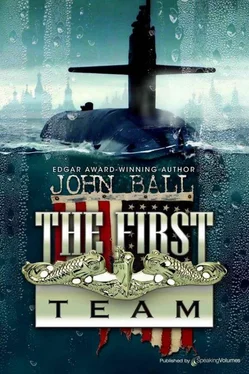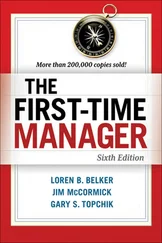Джон Болл - The First Team
Здесь есть возможность читать онлайн «Джон Болл - The First Team» весь текст электронной книги совершенно бесплатно (целиком полную версию без сокращений). В некоторых случаях можно слушать аудио, скачать через торрент в формате fb2 и присутствует краткое содержание. Год выпуска: 2013, Жанр: Триллер, на английском языке. Описание произведения, (предисловие) а так же отзывы посетителей доступны на портале библиотеки ЛибКат.
- Название:The First Team
- Автор:
- Жанр:
- Год:2013
- ISBN:нет данных
- Рейтинг книги:5 / 5. Голосов: 1
-
Избранное:Добавить в избранное
- Отзывы:
-
Ваша оценка:
- 100
- 1
- 2
- 3
- 4
- 5
The First Team: краткое содержание, описание и аннотация
Предлагаем к чтению аннотацию, описание, краткое содержание или предисловие (зависит от того, что написал сам автор книги «The First Team»). Если вы не нашли необходимую информацию о книге — напишите в комментариях, мы постараемся отыскать её.
Student protesters are being slaughtered in the Midwest.
The Jewish pogroms have begun.
You are now living in Soviet — occupied America!
One nuclear submarine and a handful of determined patriots against the combined might of Russia and Soviet-occupied America… The Most Explosive and Gripping “What If” Novel of Our Time!
First published January 1971
The First Team — читать онлайн бесплатно полную книгу (весь текст) целиком
Ниже представлен текст книги, разбитый по страницам. Система сохранения места последней прочитанной страницы, позволяет с удобством читать онлайн бесплатно книгу «The First Team», без необходимости каждый раз заново искать на чём Вы остановились. Поставьте закладку, и сможете в любой момент перейти на страницу, на которой закончили чтение.
Интервал:
Закладка:
The apparent chaos of activity characteristic of a major shipyard in operation resumed very shortly after that; the men assigned to the Magsaysay returned to their jobs under the ever watchful eyes of the guards at the brow and the gun crew a hundred feet away. When they were back inside the ship once more, the security inspector haunted them constantly, watching almost every move that they made. He spoke no English and none of the men working under his scrutiny could determine how much he did or did not know about the intricate mechanisms of the nuclear submarine.
On his left wrist Summers wore an inexpensive watch which nevertheless kept excellent time. He looked at it occasionally as most men do who work by the hour, and kept at his task. At six minutes after three in the afternoon he took the steel tape out of his kit of tools and made a short measurement. That done, he put the tape in the pocket of his work clothes and completed the adjustment he was making. Then he began to walk toward the rear of the ship.
When he was not far from the reactor compartment he glanced at one of the men working there who gave him in return an almost invisible nod: the inspector was not in the immediate area. As soon as Summers had passed him, the workman picked up a length of pipe and began to maneuver it up the passageway. It was a simple action, but it formed an effective block that would guarantee Summers at least a few seconds of needed privacy.
Summers moved quickly, but with careful precision. He stepped into a preselected niche and took out the measuring tape. He pulled up on the pin which when depressed activated the rewind mechanism and turned it to the left. The two halves of the tape container fell apart, revealing a small capsule in the center. Summers dropped the capsule carefully into the palm of his left hand and then put the steel tape away. Up to that point he had consumed only eight seconds.
The capsule was made of two sleeve sections; using both hands he pushed them together until he heard a slight sound from the inside of the tiny container. Then he placed it with great care behind a run of exposed piping where it was out of sight and securely wedged into position. His job done, he turned and waited until the passageway was clear. A minute and a half later he was back at his work station, his face impassive as he appeared to concentrate entirely on the job before him. Less than three minutes later the enemy security inspector was looking over his shoulder; he gave the man a cursory glance and then continued with what he was doing. He knew without looking again at his watch that he had just over an hour and a quarter to wait.
Master Chief Petty Officer Anson Summers was a man accustomed to responsibility. He held the highest security clearances necessary to his job and had served with distinction in the United States Navy ever since he had enlisted shortly after graduating from high school. He had seen combat action many times. He had served under Sharp, Burke, Johnson, Moorer, and Haymarket, and had known all of them personally. He was a complete professional in his job as well as a family man with five children. Until he had been selected for his latest assignment, the proudest moment in his life had been seeing his eldest son graduate from the Naval Academy.
To all of this he added one more unexpected ingredient — a remarkable natural ability as an actor. That had been discovered on an occasion when some new shellbacks were being initiated and Chief Summers, as King Neptune, had turned in a notable performance. A Marine officer on board, Lieutenant Pappas, had remembered that and stored it away in what later proved to be an encyclopedic memory. For a Navy man of Summers’ dedication to play the part of a not too gifted workman over a period of weeks had been a severe test, but he had carried it off brilliantly.
The hour that lay immediately before him was the hardest of his career. If for any reason the capsule did not work it would be his fault; he accepted that without question. He had done exactly as directed, but there had been no way to check, no procedure to make certain. He kept on at his work, but the minutes crawled by and it was all that he could do to contain himself and maintain an indifferent exterior.
Precisely at four-thirty, almost to the second, Operation Low Blow entered its second phase.
The evidence of a radiation leak initially appeared on an indicator inside the hull on the working bridge. The man who saw it first gave a convincing performance himself as he stared for a frozen second or two and then hit the alarm. The enemy inspector heard it and jerked a small instrument out of his clothing; it began to sputter like an endless chain of miniature firecrackers. Forgetting himself, he shouted an order in his own language.
He did not need to be understood, every man on board knew the meaning of the still-sounding alarm; they literally ran for the hatches and went up the ladders one after the other with frenzied speed, the inspector among them. By the time that the first of them had reached the deck of the submarine, the radiation detector on the dock had already responded and was climbing rapidly toward the danger zone.
Overhead in the crane housing Walter Wagner had been waiting with the icy nerves of the experienced professional agent; he was at this moment uncommitted himself, but he had been greatly concerned for the success of Summers’ mission. He knew that if it had been properly placed the capsule would work; Stanley Cumberland had guaranteed that. When, right on the minute of the projected time, men began pouring out of the submarine far below he felt a surge of elation; he reached to one of the controls of his great machine and watehed the boom move in response slightly to the left.
From the window of his home close to the shipyard a ham radio operator observed the movement through binoculars which he had been patiently holding before his eyes for almost an hour. Moments later he was on the air calling CQ. He was heard at once by sensitive equipment which had been monitoring his frequency, and a waiting signal was relayed immediately to the underground complex that was the headquarters of Thomas Jefferson. The message board in the conference room came alive with letters which quickly spelled out: the isotope has been dropped.
As soon as he had read that, Admiral Haymarket slumped back in his chair. He and as many others as had been able to obtain permission to come in had been waiting for that word, almost all of them aware that for the past several hours the whole operation had narrowed down to one man. The saving factor had been the knowledge that the man in question was almost totally reliable and because of a particular talent was not likely to give himself away.
General Carlton Gifford clasped his hands on the table before him and murmured, “Thank God.” He did not care who heard him.
Lieutenant Colonel Henry Prichard looked at Ed Higbee, the journalist. “Now if they’ll only buy it,” he said.
Higbee nodded his head with the confidence of the totally competent propagandist. “They will,” he answered.
Stanley Cumberland puffed at a cigar and said nothing. As usual his face was a mask, but the admiral knew that he had to be feeling the satisfaction of the developer of something that had worked precisely right.
Only Major Pappas did not take a moment to relax. He carefully laid aside three of the alternate plan sheets before him — they would no longer be required. He would have given anything to have been in Walter Wagner’s shoes at that moment, but it had had to be Wagner and he knew it; if the decision had been his to make he would have called it the same way. The mission was what counted — the mission and nothing else.
Cumberland spoke to the admiral. “Good man you’ve got there.”
Читать дальшеИнтервал:
Закладка:
Похожие книги на «The First Team»
Представляем Вашему вниманию похожие книги на «The First Team» списком для выбора. Мы отобрали схожую по названию и смыслу литературу в надежде предоставить читателям больше вариантов отыскать новые, интересные, ещё непрочитанные произведения.
Обсуждение, отзывы о книге «The First Team» и просто собственные мнения читателей. Оставьте ваши комментарии, напишите, что Вы думаете о произведении, его смысле или главных героях. Укажите что конкретно понравилось, а что нет, и почему Вы так считаете.












